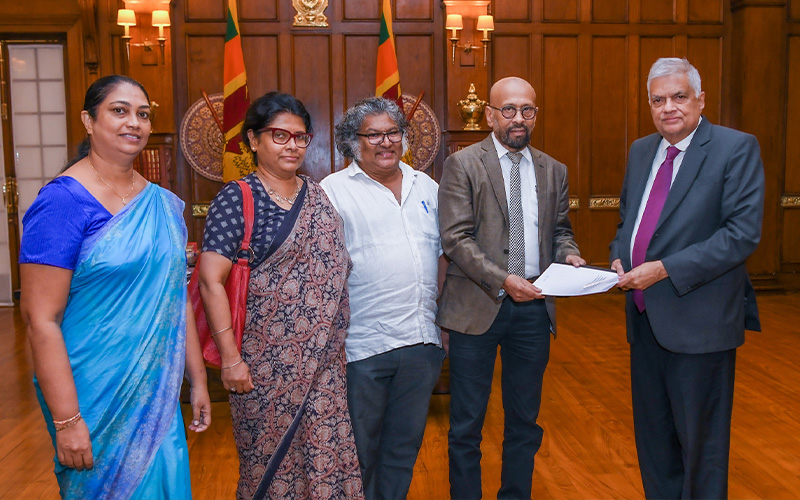UK parties discuss sanctions and taking Sri Lanka to the ICC at first ever British Tamil hustings
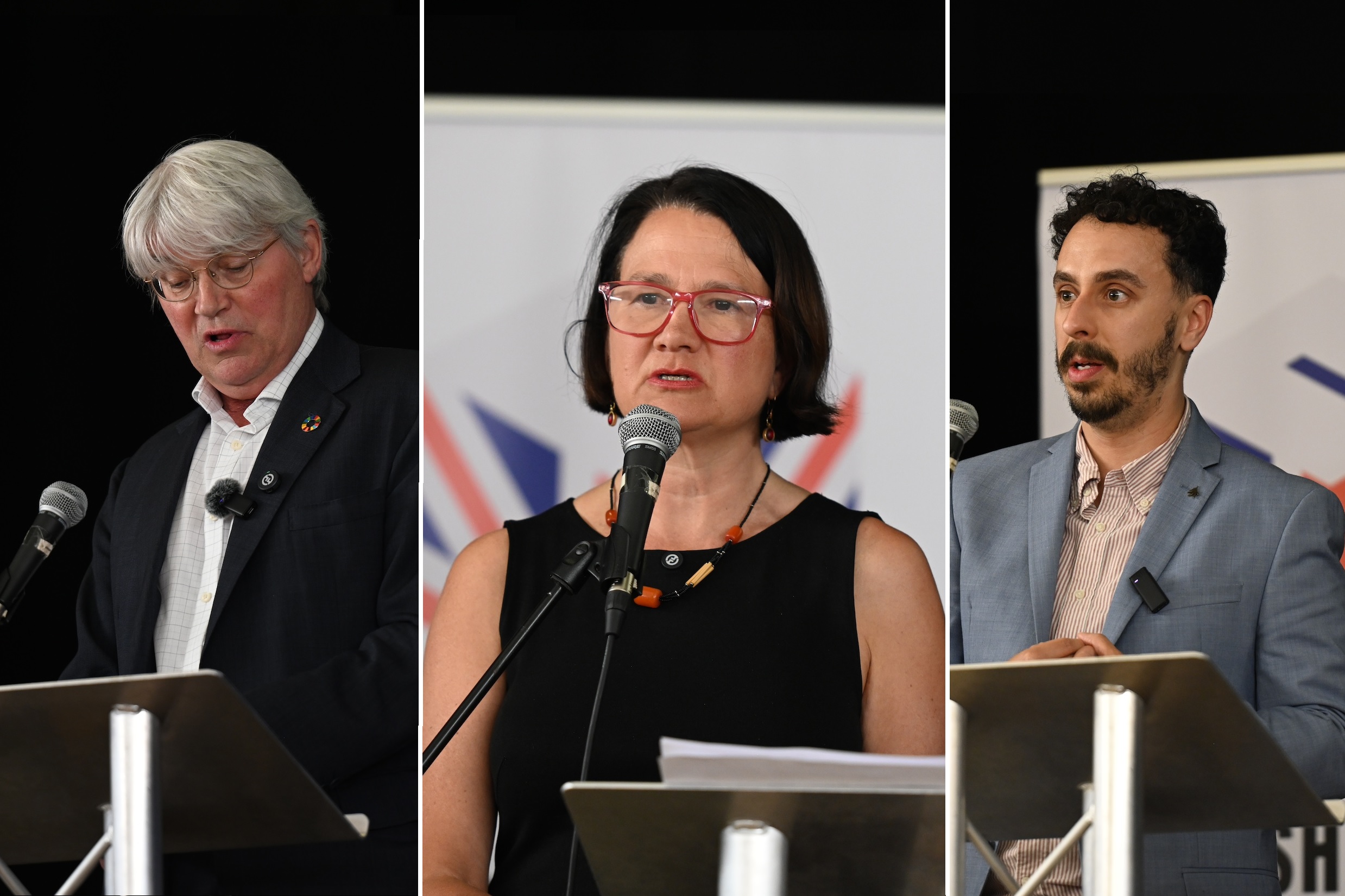
Ahead of Britain’s general election on 4 July, representatives from the Conservatives, Labour and Green Party addressed the first-ever British Tamil hustings, as they all pledged to work towards justice and accountability for mass atrocities in Sri Lanka.
The event, hosted by the Tamil Guardian and British Tamil Alliance, took place in Westminster, London last week, as party representatives laid out their vision for the country and shared commitment to the British Tamil community.
Deputy Foreign Secretary Andrew Mitchell of the Conservative Party, Shadow Minister for Asia Catherine West of the Labour Party and Migrant & Refugee Support Spokesperson for the Green Party Benali Hamdache took questions from Tamil Guardian editor Dr Thusiyan Nandakumar, and from the audience, on recognition of the Tamil genocide and international justice for the mass atrocities, amongst other pressing issues.
Taking Sri Lanka to The Hague
Whilst Mitchell spoke of how a Conservative-led government would continue to raise Sri Lanka at the UN Human Rights Council, West was clear that the Labour Party would look to refer Sri Lanka to the International Criminal Court.
“Unlike the current government, in the most ordered way we can, we will be putting the international law at the heart of our foreign policy,” said West. “Keir Starmer, as you are aware, has previously called on the British government to take a leading role in referring Sri Lanka to the International Criminal Court.”
West maintained that the “assessment and mechanism exists within Britain’s Foreign and Commonwealth Development Office, but we believe there has a lack of political will to put into motion that mechanism”.
“That is a clear line between ourselves and the current government. We support all measures to hold those responsible for human rights abuses to justice.”
Whilst Mitchell said the Conservative Party would continue to support action at the UN Human Rights Council, when pressed on whether there was value in the UK raising Sri Lanka at the UN Security Council, he responded by saying, “We could certainly look at it and if members of the Tamil Community here pressed us to do so we certainly would”.
“The international community failed you,” Hamdache stressed. Comparing the massacres at Mullivaikkal to the current situation in Gaza, Hamdache detailed the numbers of Tamils killed or unaccounted for and said it was “devastation on a scale beyond Gaza and we've seen the response there”.
“We've seen a referral to the International Criminal Court. I think it's devastating that that didn't happen from the government in 2009.”
Sanctions on Sri Lankan war criminals
In discussing targeted sanctions on Sri Lankan individuals accused of war crimes, Nandakumar noted that whilst the US and Canada have imposed sanctions on Sri Lankan officials implicated in human rights abuses, the UK has not so far.
Mitchell said that sanctions were “one of the responses in the diplomatic toolkit” that the UK could use but that “we don't speculate on or discuss sanctions designations in advance because that would reduce the impact”.
“Looking at the UK's sanctions regime there are Syrians accused of war crimes there, Russians, North Koreans etc,” responded Nandakumar. “Would Sri Lankans not be on that list?”
“I know you're saying you can't speculate on what sanctions may be up and coming, but I mean it's been 15 years,” Nandakumar continued. “The UK was very quick to act when Russians were committing atrocities. What’s taking so long with Sri Lanka?”
Mitchell said that the sanction policy was “not country-specific” but instead based on the offence. “I don't want you to feel that that Sri Lanka is neglected in that process,” he added.
Questioned on why Sri Lankan war criminals were yet to face sanctions from the British government, West admitted that “it is curious”.
“If I do become the minister in two weeks I would like to understand from officials within the foreign office what their assessment is of the Magnitsky style sanctions and whether they could be effective or not.”
Genocide recognition
The Deputy Foreign Secretary was asked if he would support efforts to recognise the Tamil genocide, as the Canadian Parliament has done by marking May 18 as Tamil Genocide Remembrance Day.
The minister maintained that whilst there was not a designated remembrance day, he would continue to remember those “killed and disappeared, and their loved ones who continued to search for answers”.
When asked further about the term genocide in particular, Mitchell recalled his work memorializing the Holocaust and the Rwandan genocide. “I'm very focused on the importance of stopping genocide and putting some reality on when we say, ‘no more’.”
Whilst he said the determination of genocide is made by courts, “there is no getting away from the fact that this was a devastating chilling conflict where we saw many appalling acts that have left so many people scarred”.
Asked about genocide recognition, West said though it needs to be proven in a court of law, “that doesn't mean that parliamentarians can't use that term”.
“For now we will continue to have the May remembrance of Mullivaikkal Day and we will continue to work with community members in any way that they see fit - coming into Parliament having events or having events near Parliament so that we can remember and be educated.
You'll have a whole new raft of MPs coming forward who will have Tamil residents living in their constituencies and it's a very effective campaign which is run by the various Tamil groups to connect with your own MP to explain why this is important.
So, it is important to use the right words. It's also important that MPs do the correct thing and educate themselves on what did happen 15 years ago and what still needs to happen in terms of putting things right.”
Hamdache meanwhile said for him personally, it is “crystal clear” that “we saw genocide”. When asked about official recognition, such as how Canada’s parliament passed a motion commemorating May 18 as Tamil Genocide Remembrance Day, he replied, “I've spoken to Green parliamentarians about this I would be very proud to work with them to make that happen in Parliament.”
“I think it's a real shame on the UK that we lag behind countries like Canada who have taken a much more principal stand on everything from sanctions to recognizing the genocide.”
Asylum seekers and refugees
Questioned on Tamil asylum seekers, Mitchell maintained that the UK was a “compassionate country and we have indeed rightly taken in Tamil refugees over the years, including during the years of armed conflict”.
But he went on to state that asylum claims were assessed on a “case by case basis” and “there is a process which goes on, which rightly should take its course”.
Asked about the plight of Tamil asylum seekers, West stressed that she has “always stood on a point of principle that we should have an open welcoming and fair asylum system”.
“Under (Shadow Home Affairs minister) Yvette Cooper we would see the most vulnerable in our society having a welcome and accepting home - provided that they had a genuine asylum claim. And that of course would be subject to an assessment by caseworkers.”
On the issue of refugees and asylum seekers, the Green Party representative claimed that for the past 14 years, the Conservatives have made the asylum system, “harder, crueller and non-sensical”.
“It’s cruelty for Daily Mail. It’s not real policy-making. A Green MP and a Green government would work to rip up every single anti-refugee bill that we've had for the last 14 years.”
Trade sanctions
When questioned on wider sanctions on Sri Lanka, Mitchell said “I don't think we would see it as appropriate to impose trade sanctions”. “I think it is the other mechanisms which we've been talking about which are the right way to pursue this.”
Hamdache meanwhile lambasted former UK Prime Minister, Liz Truss for courting Sri Lanka for bilateral trade and said that “the only thing she should have been courting him for is the International Criminal Court.”
“We need a consistency of approach,” Hamdache continued. “What we did with Ukraine and Russia was correct and it was the right thing to do. But I think a lot of communities are looking today and saying, ‘why haven't we had that treatment? Why didn't we get that justice? Was it because of the colour of our skin?’”
Self-determination and independence
Mitchell similarly commented on the right of self-determination for the Tamil people, acknowledging that an independence referendum was a demand.
“But you'll understand that as a government minister, I have to be very careful about taking a position on the Sovereign decisions of another country,” he said. “I'm sorry I can't really give you the kind of answer that you may be hoping."
“I hope very much that if we are re-elected to government on July the 4th we can intensify the communications and discussions that we have ourselves with you, and with the community so that we can be a force for good in driving forward reconciliation within Sri Lanka, so that the future is so very different from the past.”
West was also questioned about recognising the Tamil right to self-determination and support for an independence referendum for Tamils. “We do have to be careful that the UK isn't making judgments about an internal matter in another country,” she responded but said Labour would “support democratic processes”.
Speaking on the right of self-determination, Hamdache said “one of the Green principles that I'm really proud of is the idea of subsidiarity”. “It's the idea that decisions are made best by local communities,” he continued. “That's why we supported Scottish independence.”
“The Greens have a long tradition of standing up for independence movements and the right for people to decide."
Praise for British Tamils
All three of the speakers were full of praise for the British Tamil community and the widespread contributions they had made.
Speaking to the audience, Britain’s Deputy Foreign Secretary Andrew Mitchell, detailed his party’s support for the British Tamil community and praised their contributions to various fields, such as business, education and medicine.
In her opening statement, the Shadow Minister said British Tamils have contributed to the rich tapestry of life in the UK. She further detailed Shadow Foreign Secretary David Lammy’s commitment to restore Britain’s status on the world stage, whilst acknowledging the pain the Tamil people had suffered. “Without peace and reconciliation and justice the wounds of the past will never heal,” she added.
West concluded by stating that regardless of the election outcome, “we will always have your back and we will continue to fight your corner”.
In his opening address, Hamdache detailed the “amazing contribution” British Tamils have made to life in Britain, stating “The UK is a country built by migrants”.
He also stressed the UK’s colonial debt to Sri Lanka and reflected on the British empire’s legacy that left “scars and consequences” - from the “pogroms in 1956, 1958, 1977, 1981 and Black July in 1983” to the massacres at Mullivaikkal.
“I remember as a young man seeing that awful, awful genocide against the Tamils and it breaks my heart to see what happened. And it breaks my heart to be here 15 years later to say that you haven't found justice.” “We need a government that puts International humanitarian law at the heart of what it does,” continued Hamdache.
Whilst recognising that the Green party is “unlikely” to form the next government, he stressed that their focus was on holding a potential Labour government to account. “Right now are looking at the Labour Party and looking at the Labour Party's u-turns on everything from Gaza to the Green New Deal. And the question is how do we make sure that the Labour Party is listening to everyone's concerns.”
“I'd apologize I don't think we've been vocal enough on this,” he admitted.
“And I'd love to start building connections, relationships so that you hear that green voice in that next Parliament holding the Labour government to account on these issues.”
_____
The Liberal Democrats were also invited to participate in the hustings event but were unable to send a senior party representative.

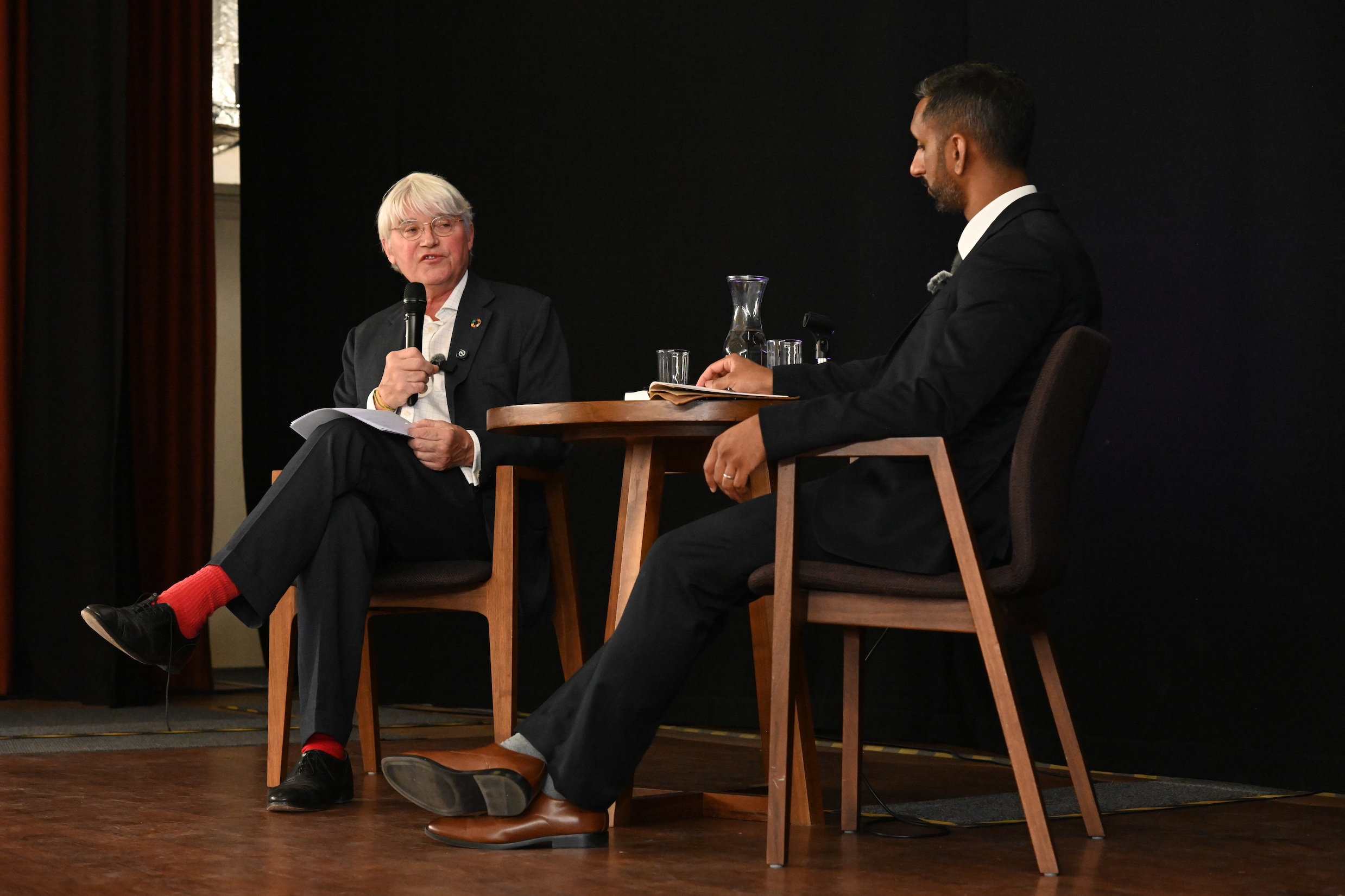
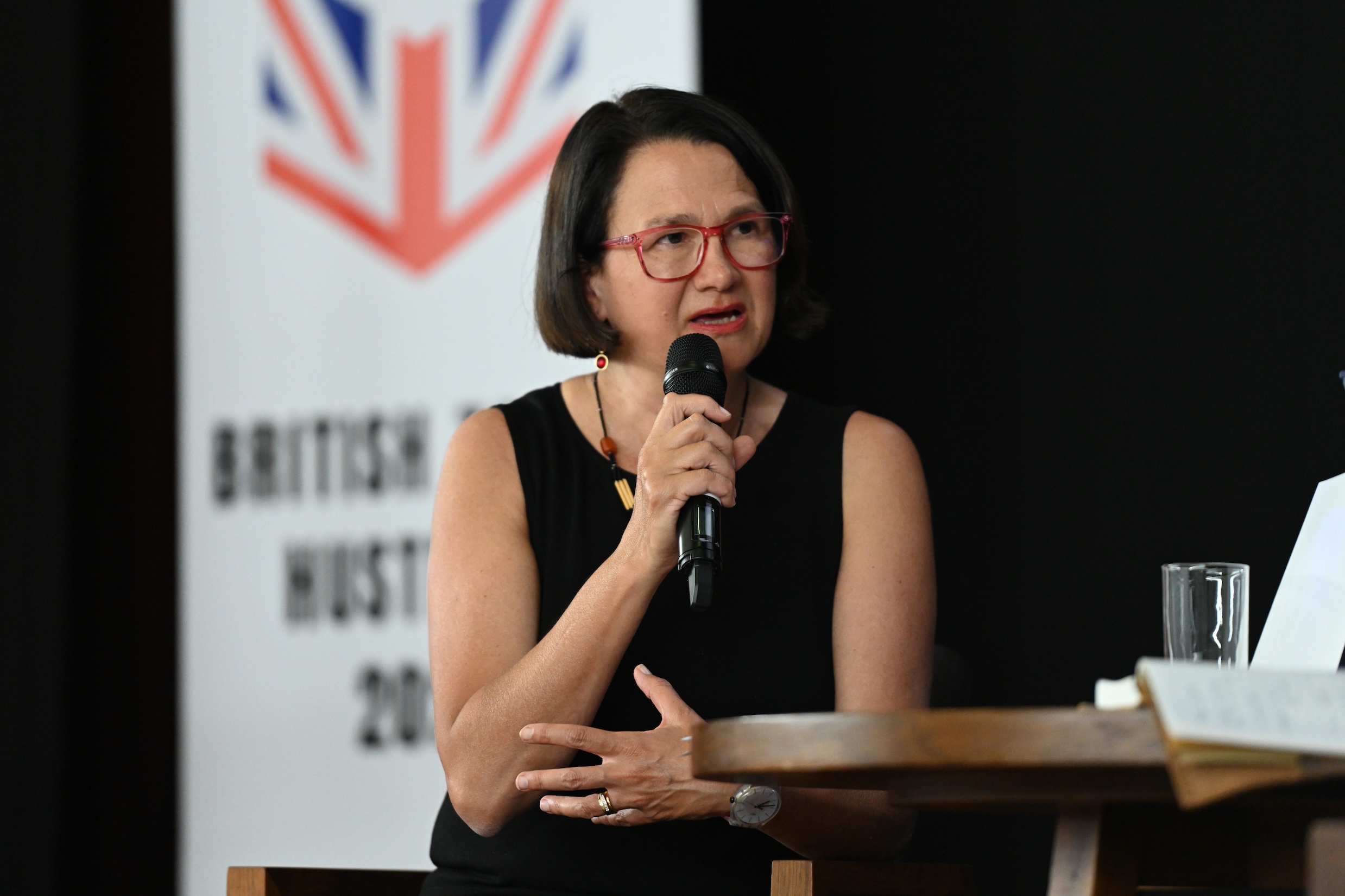
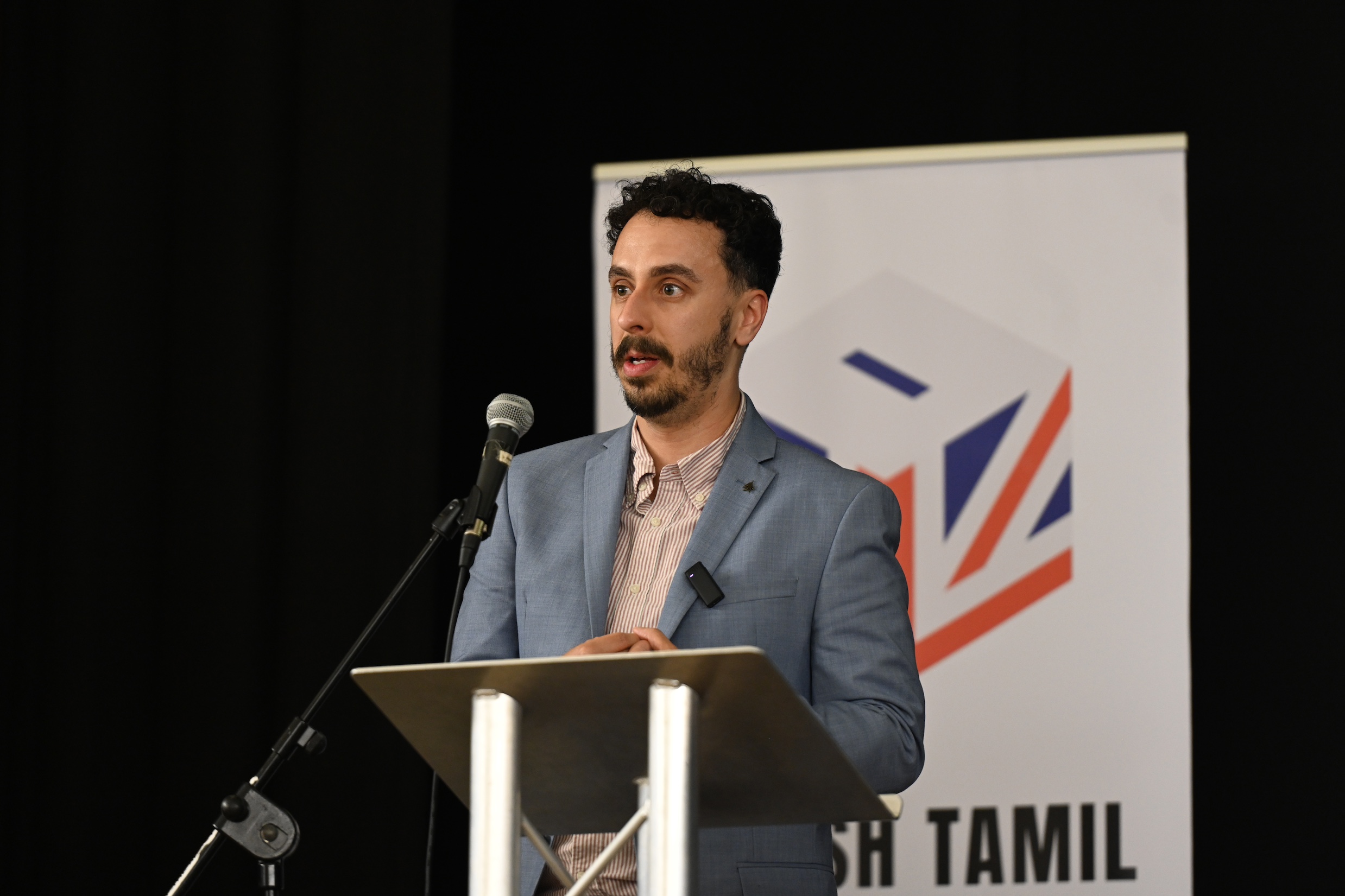
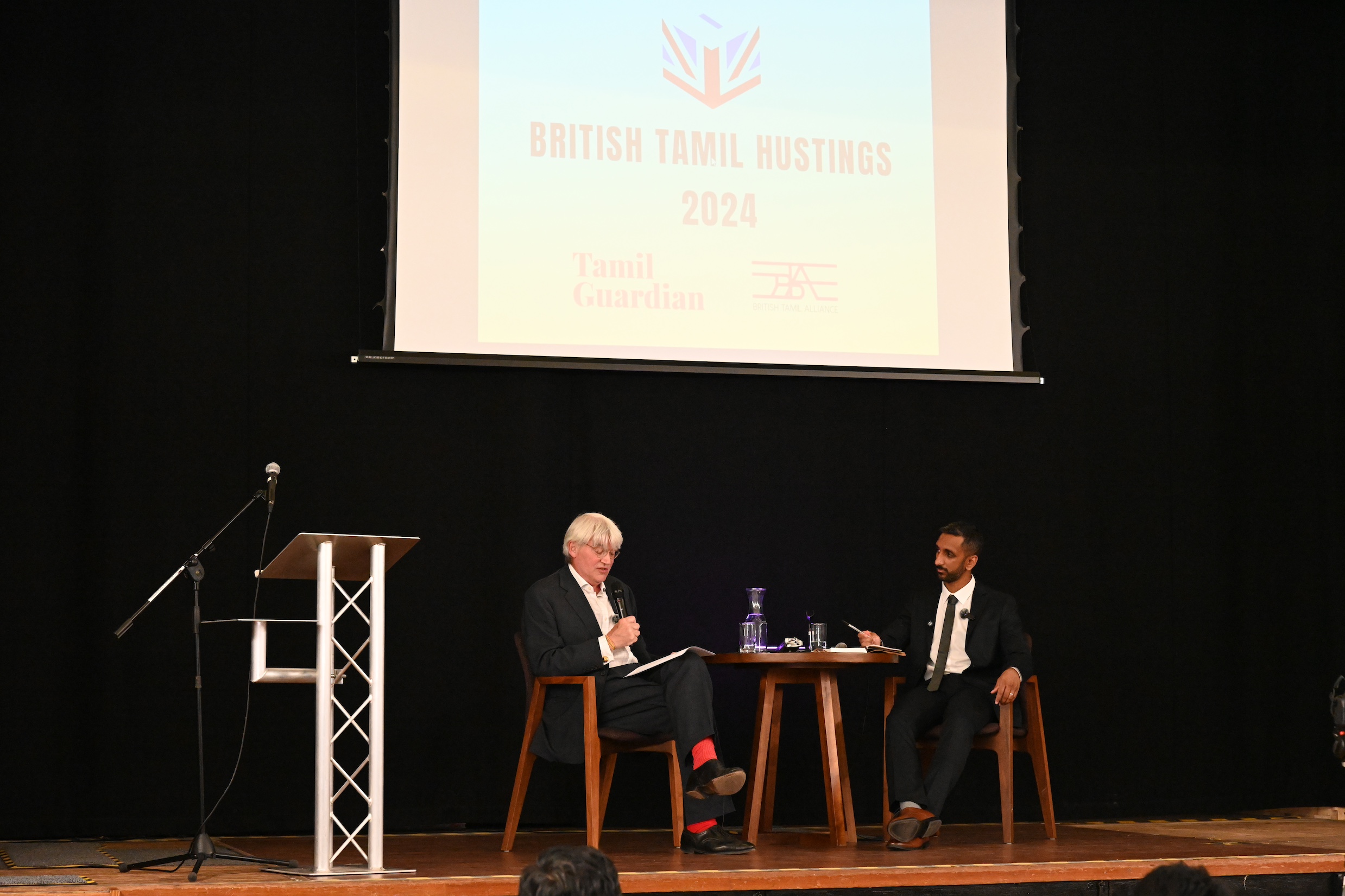
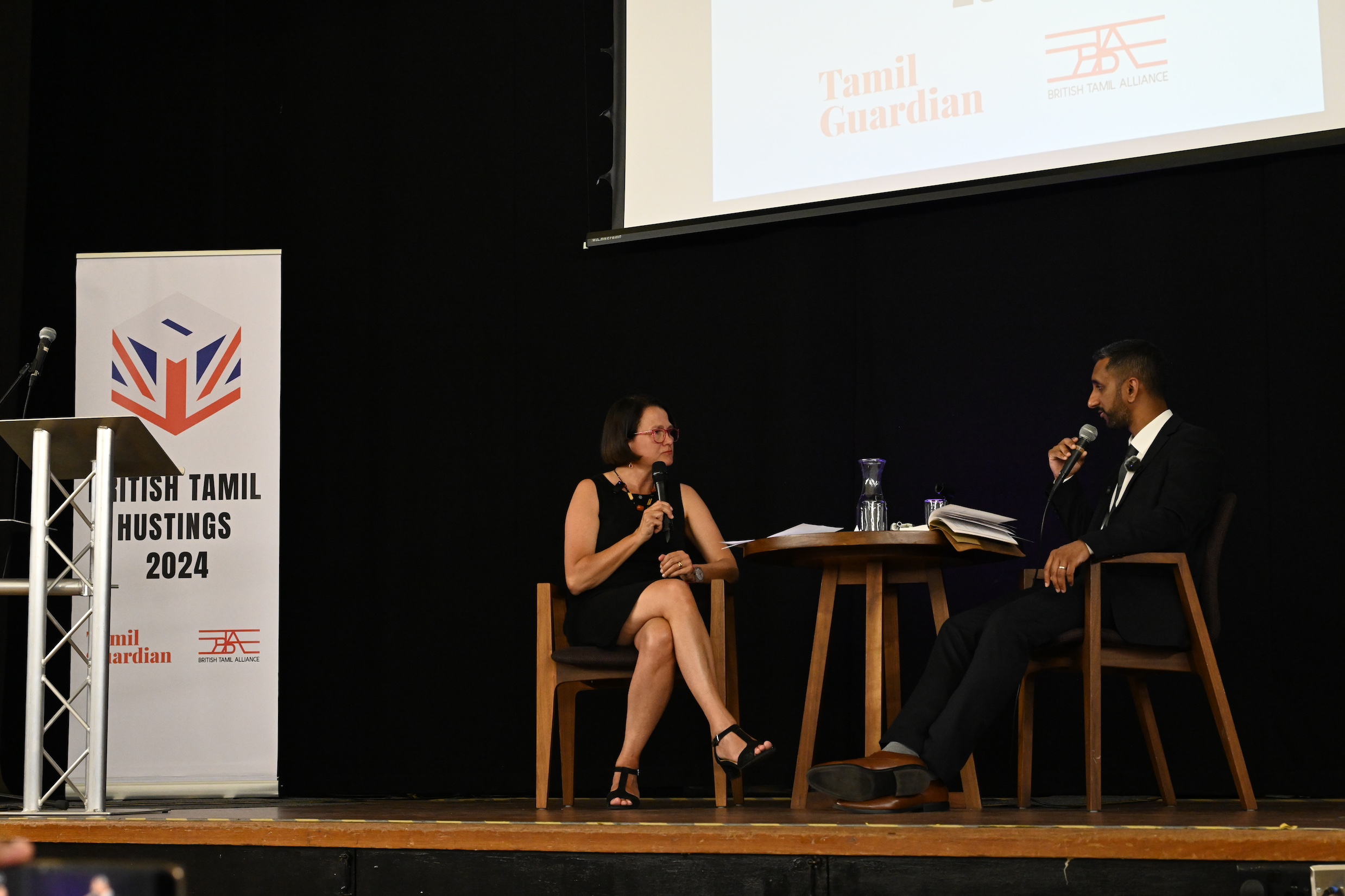
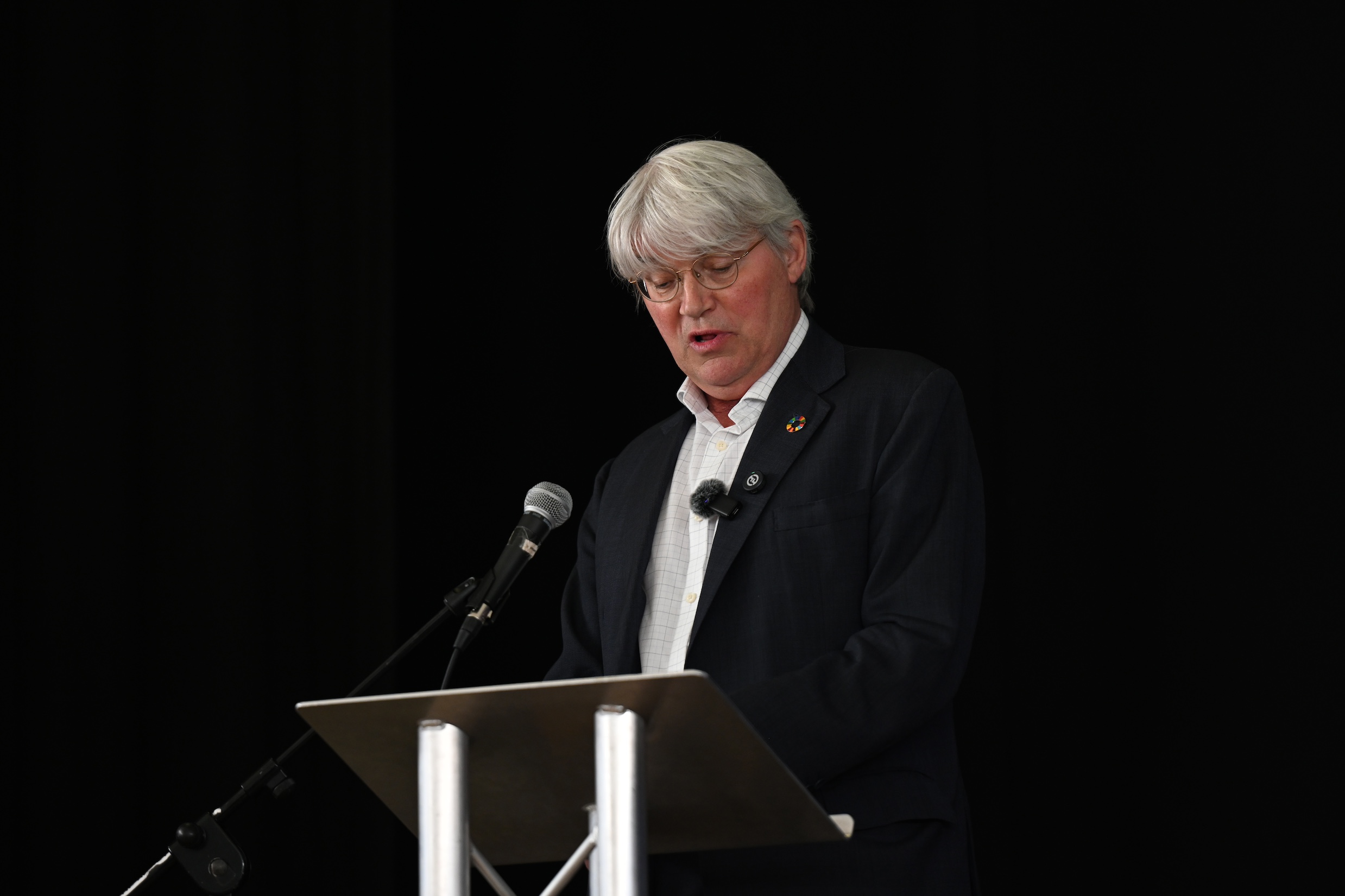
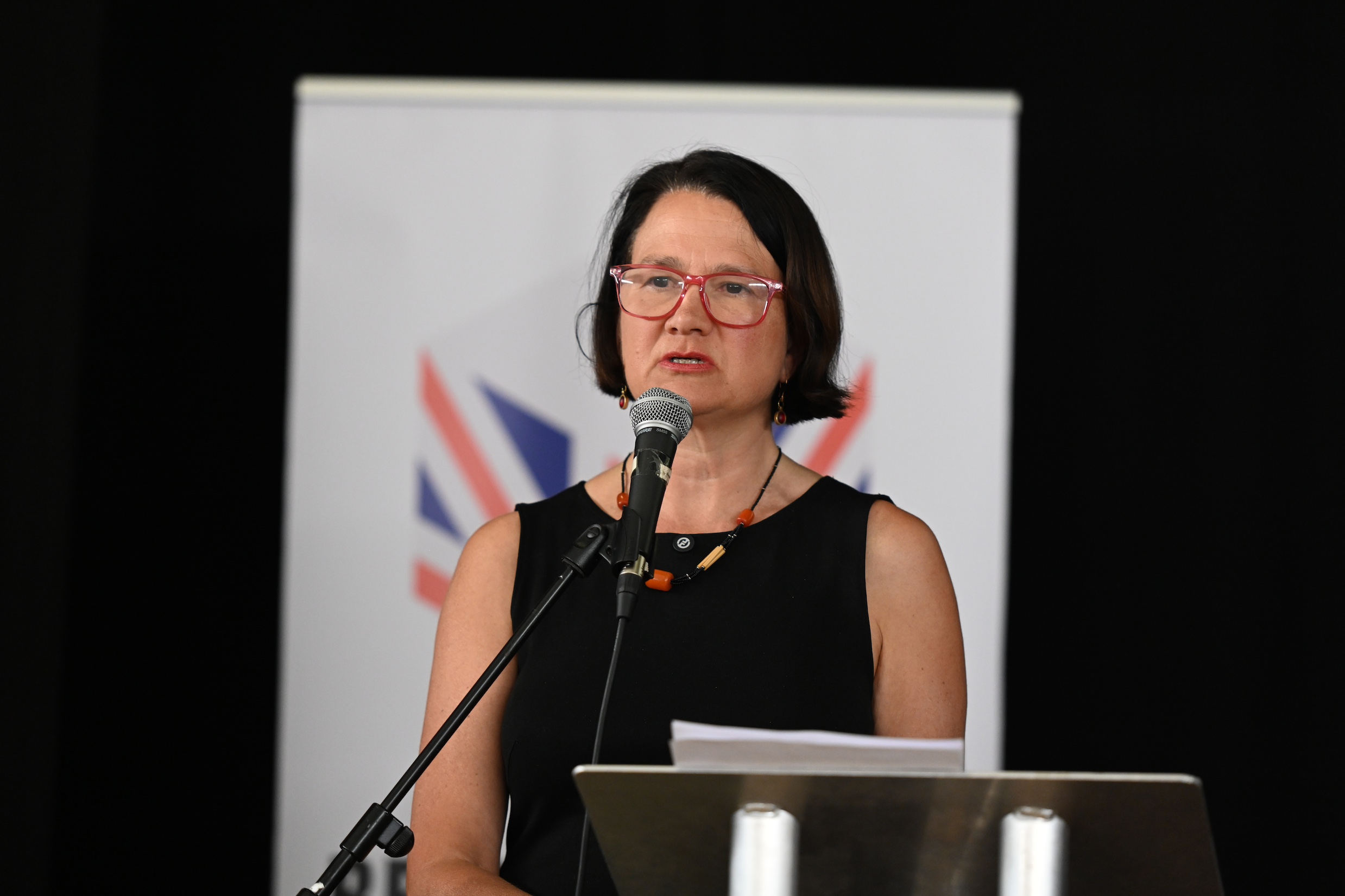
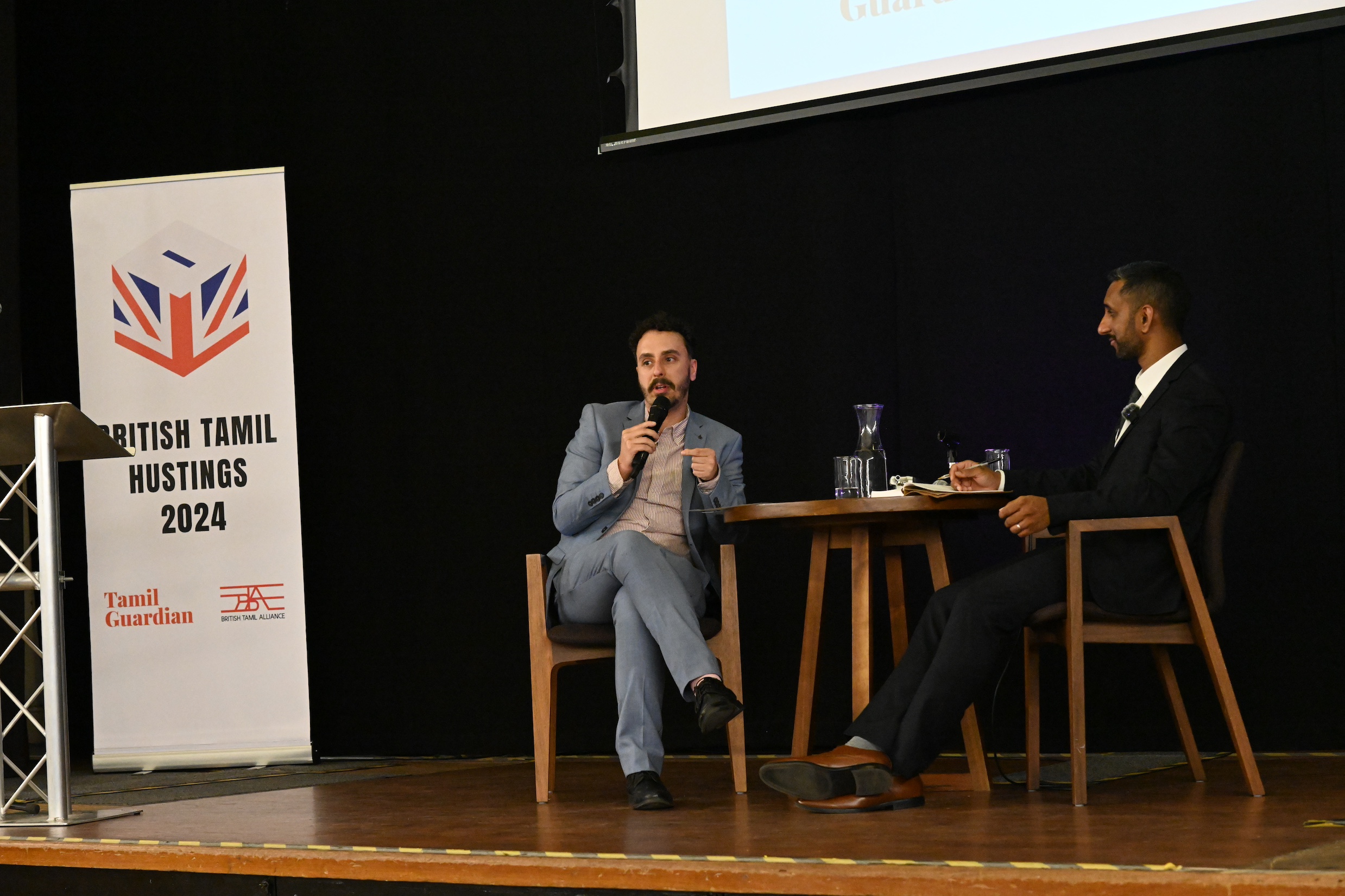
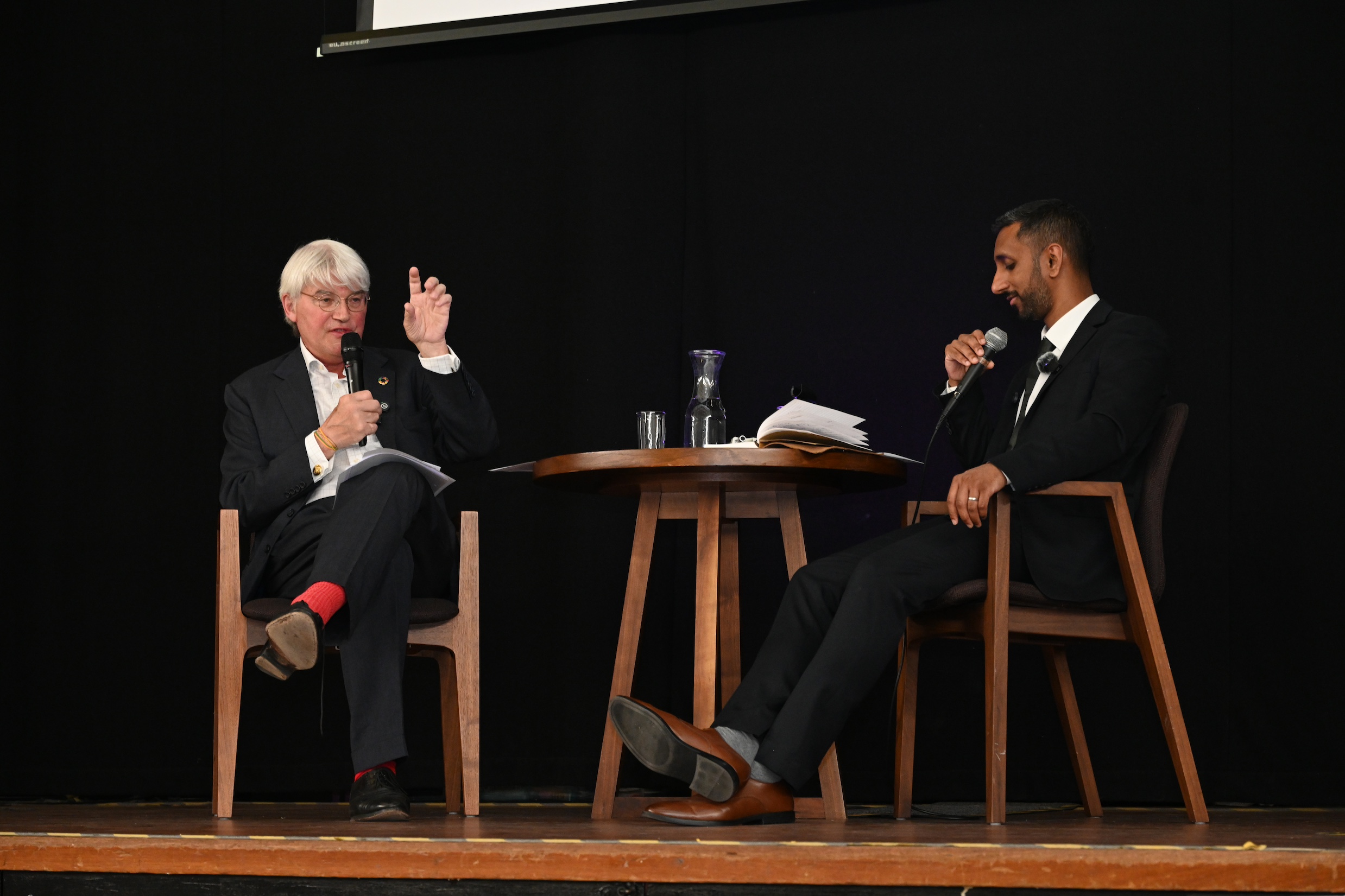
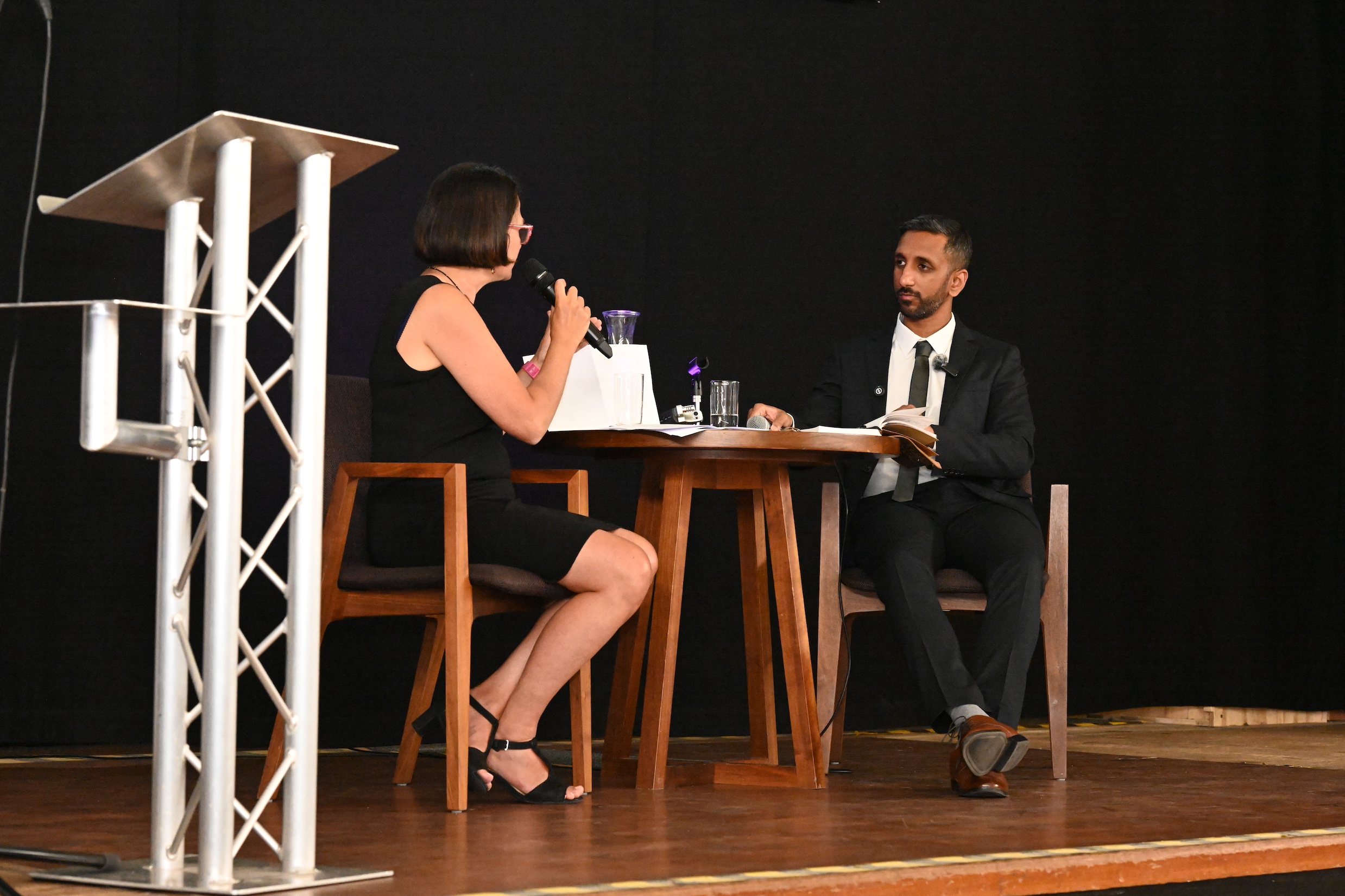
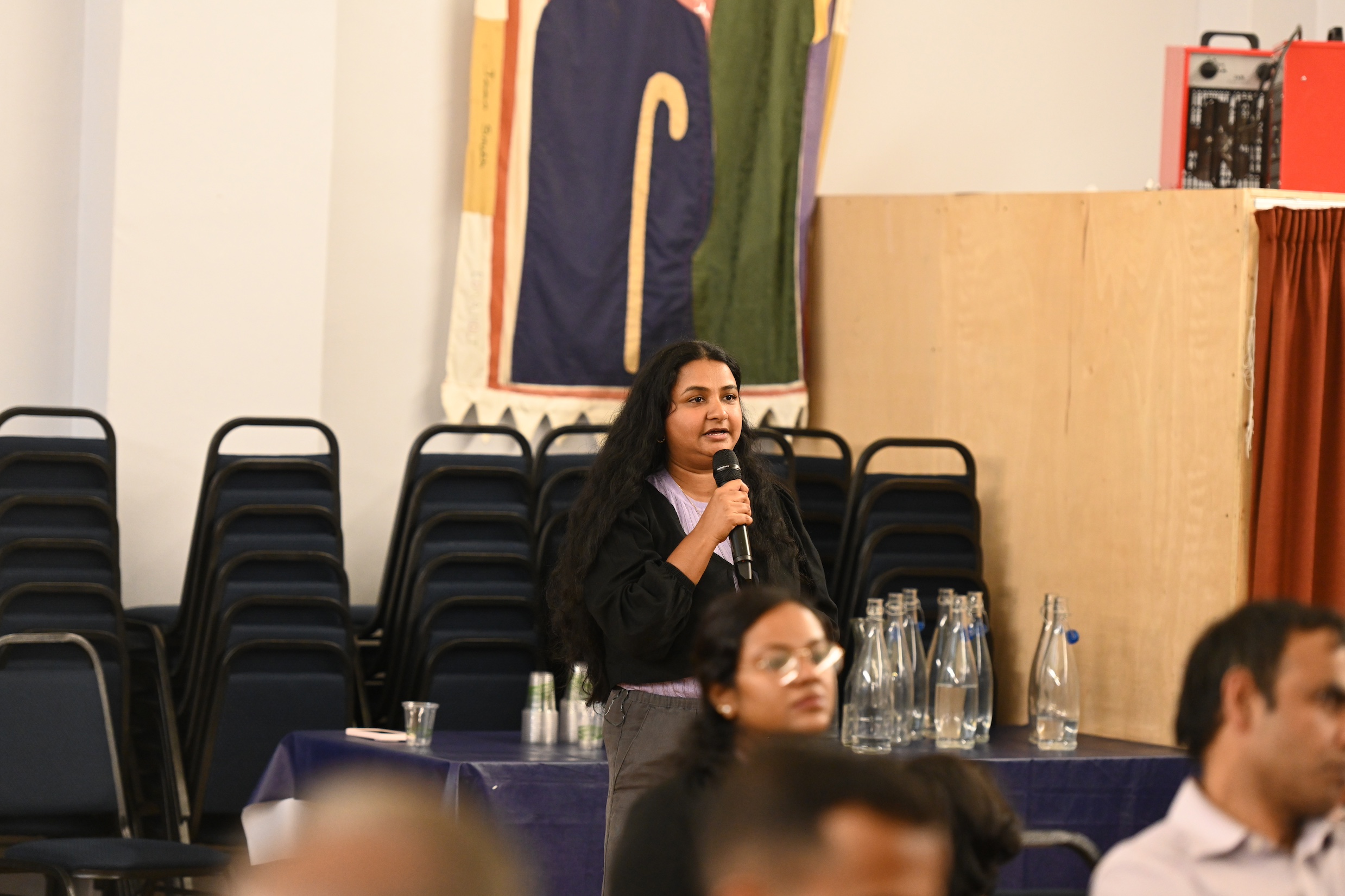
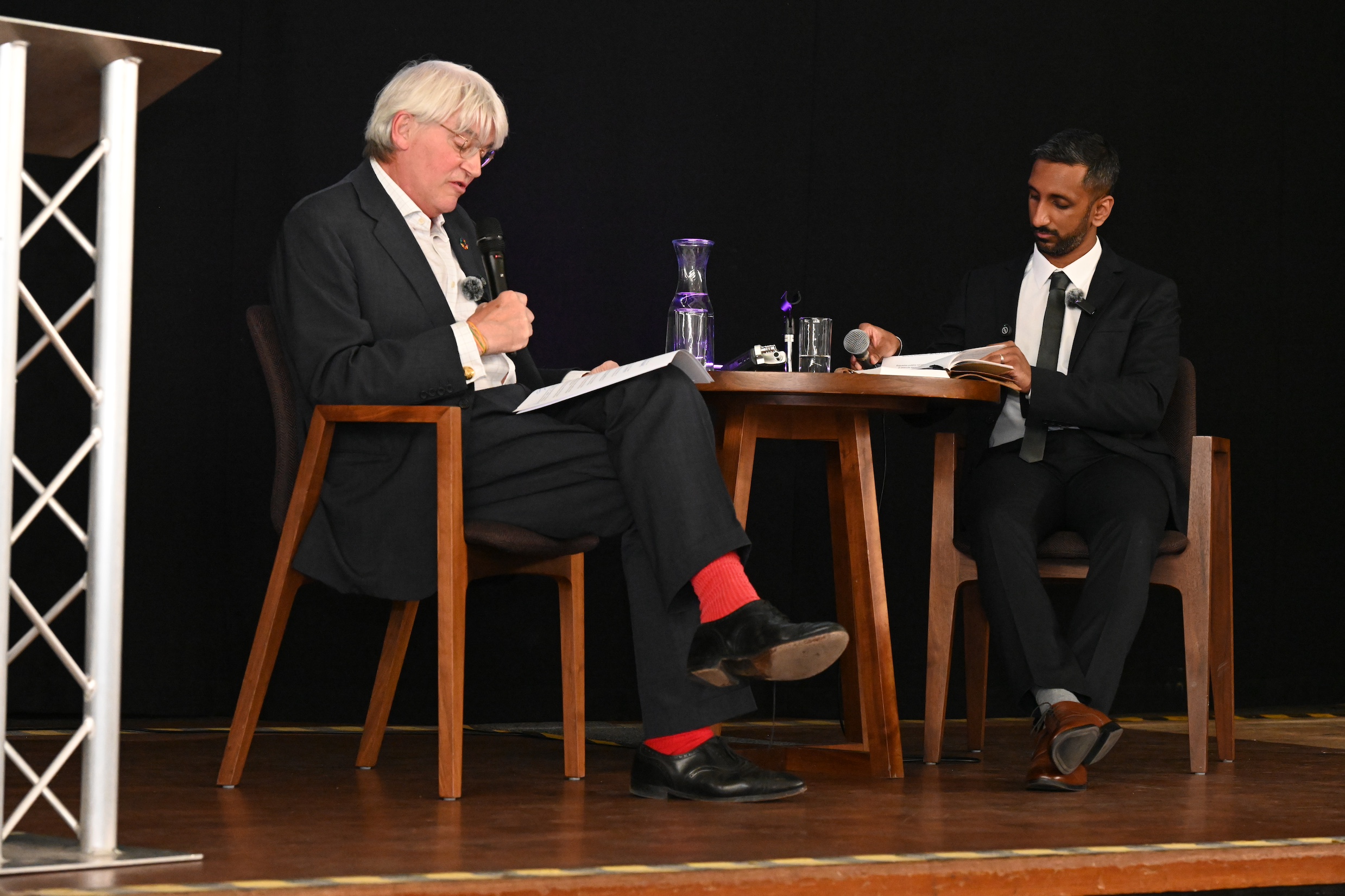
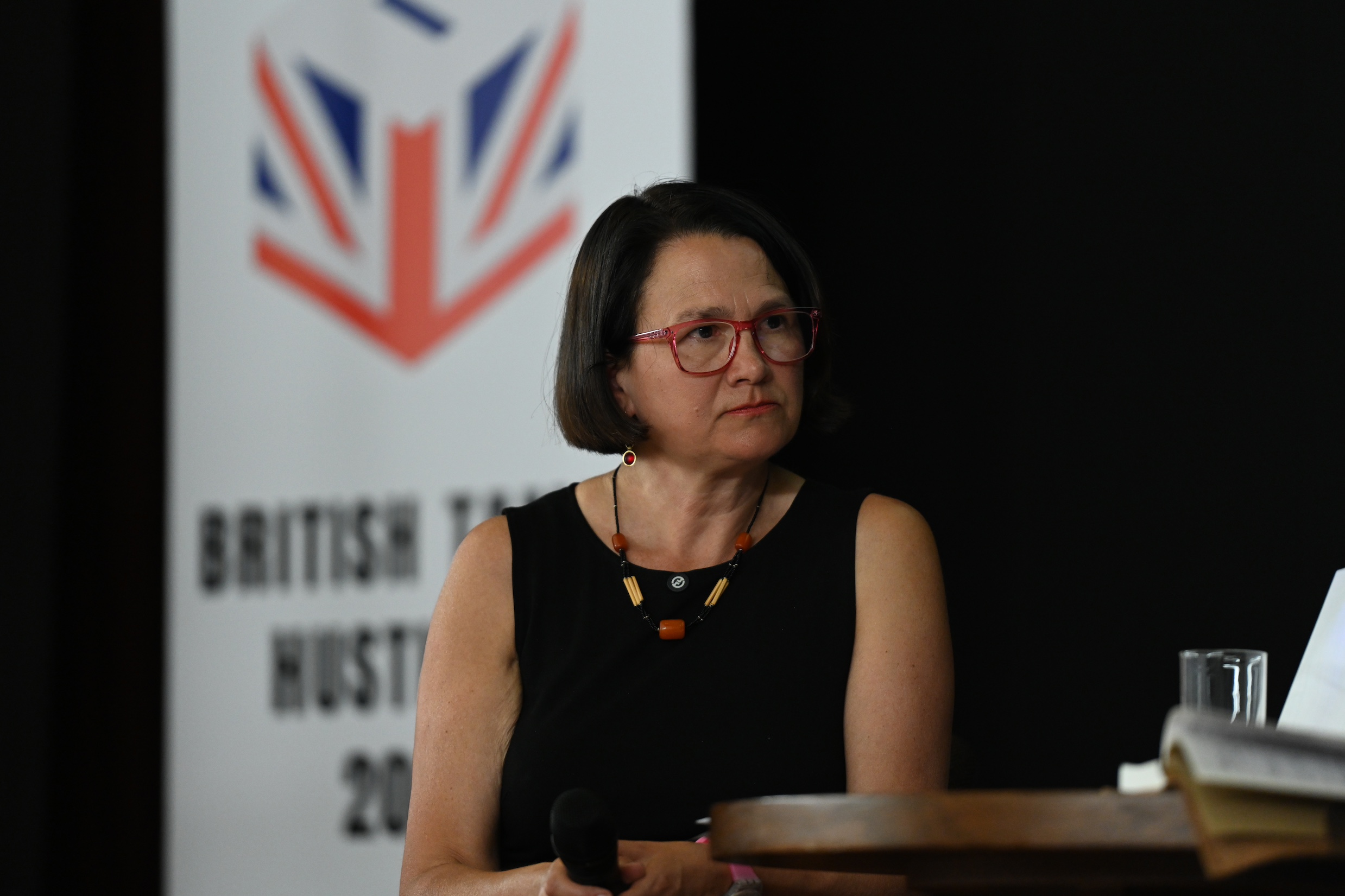
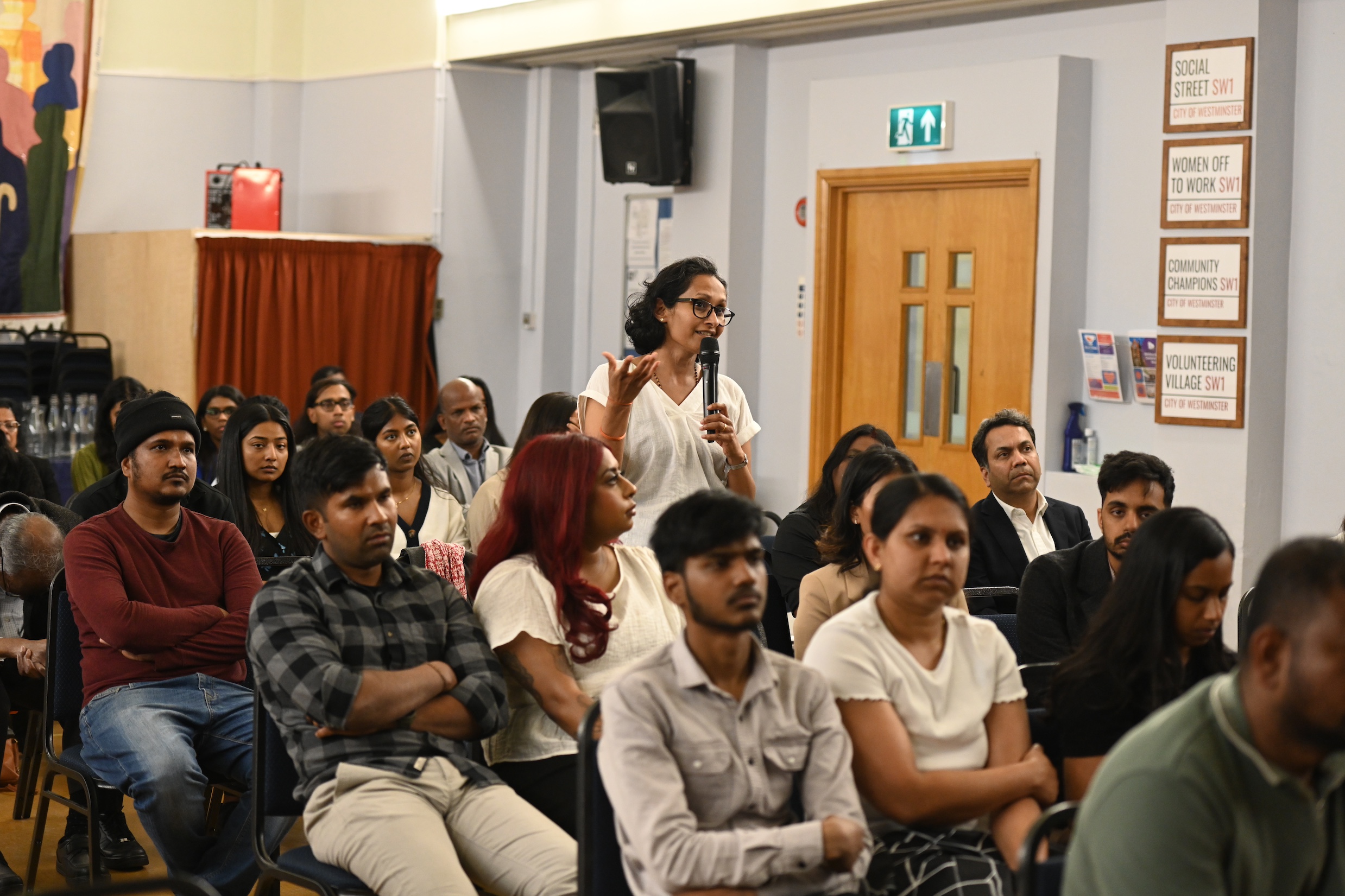

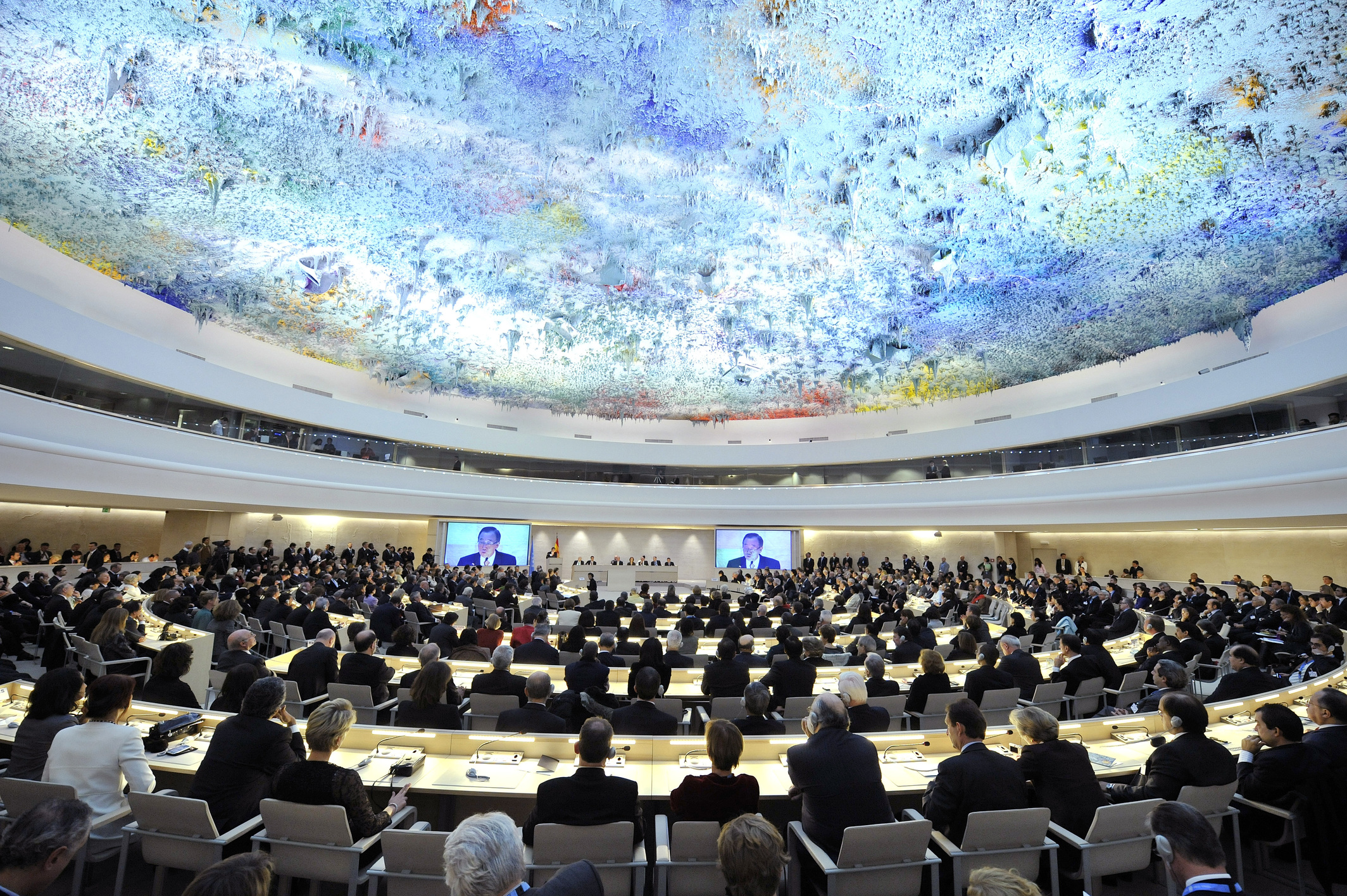



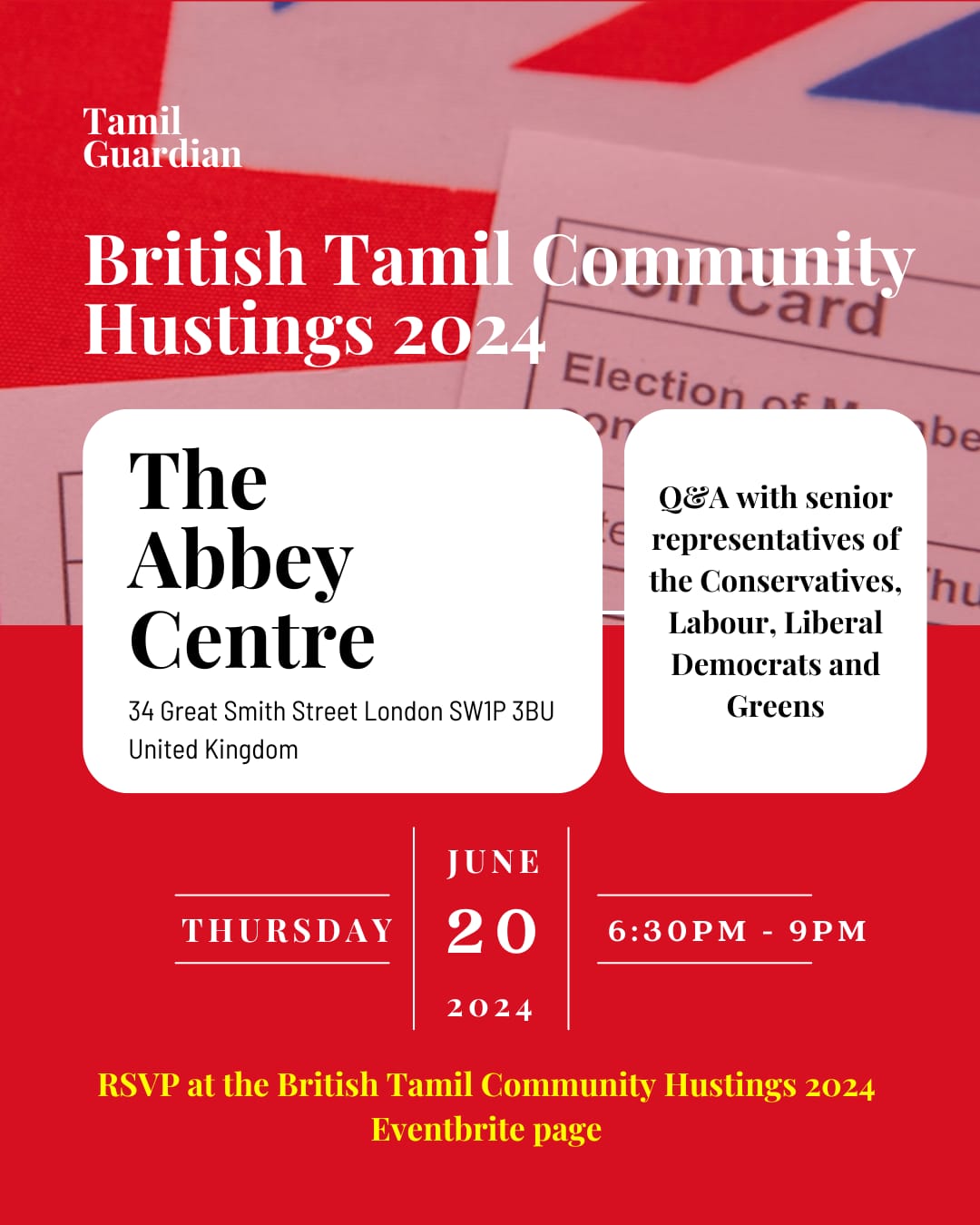

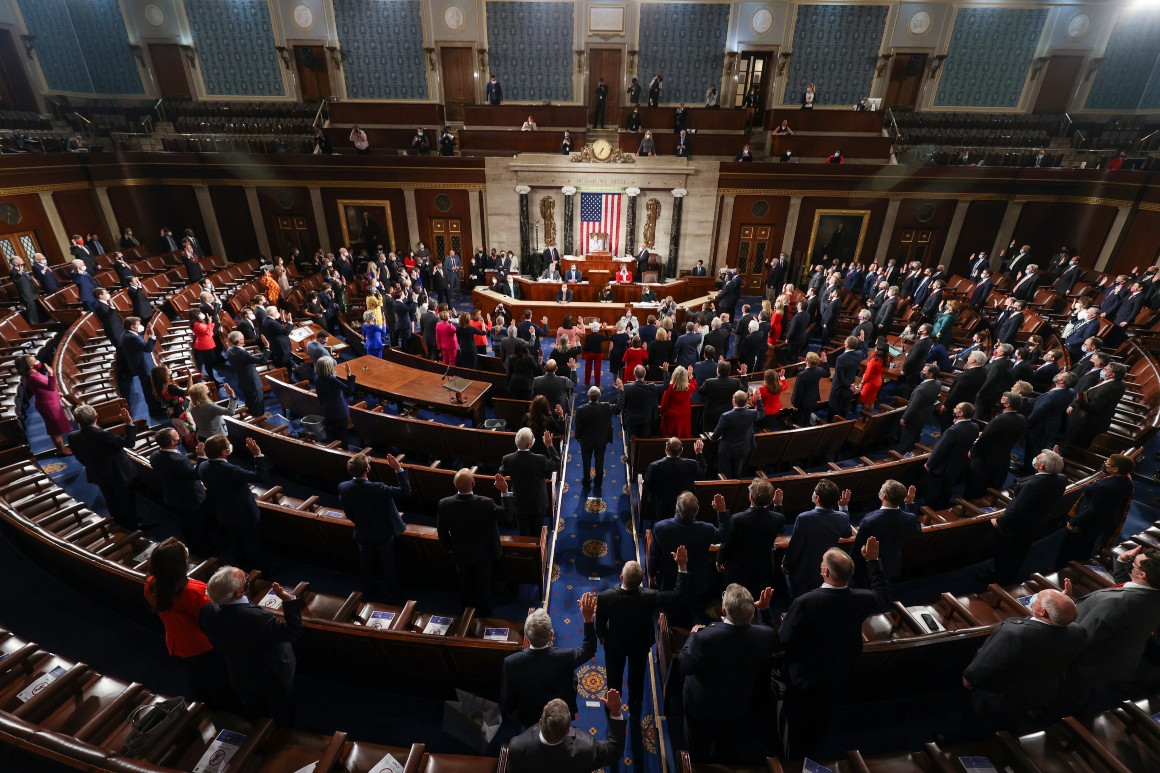
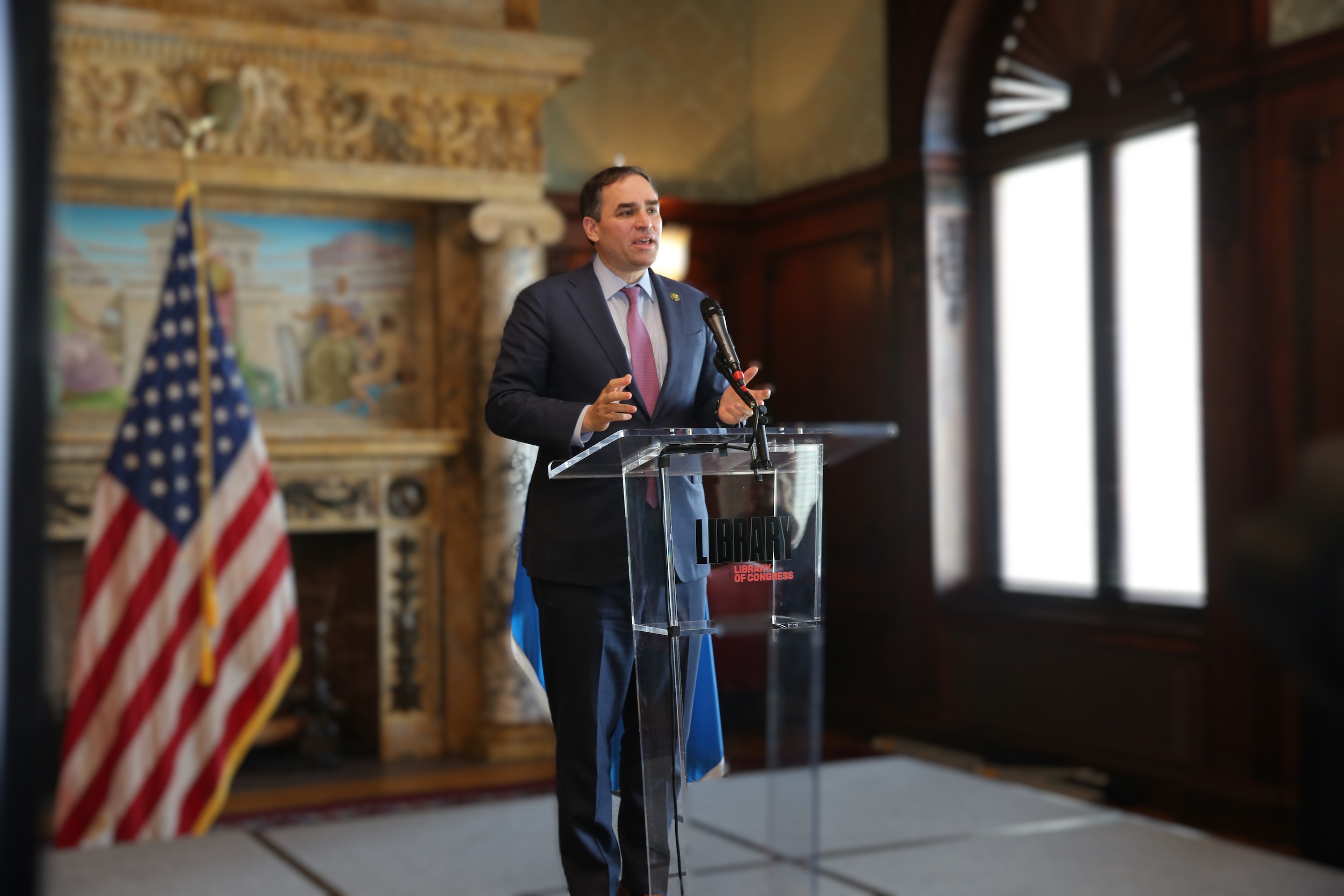
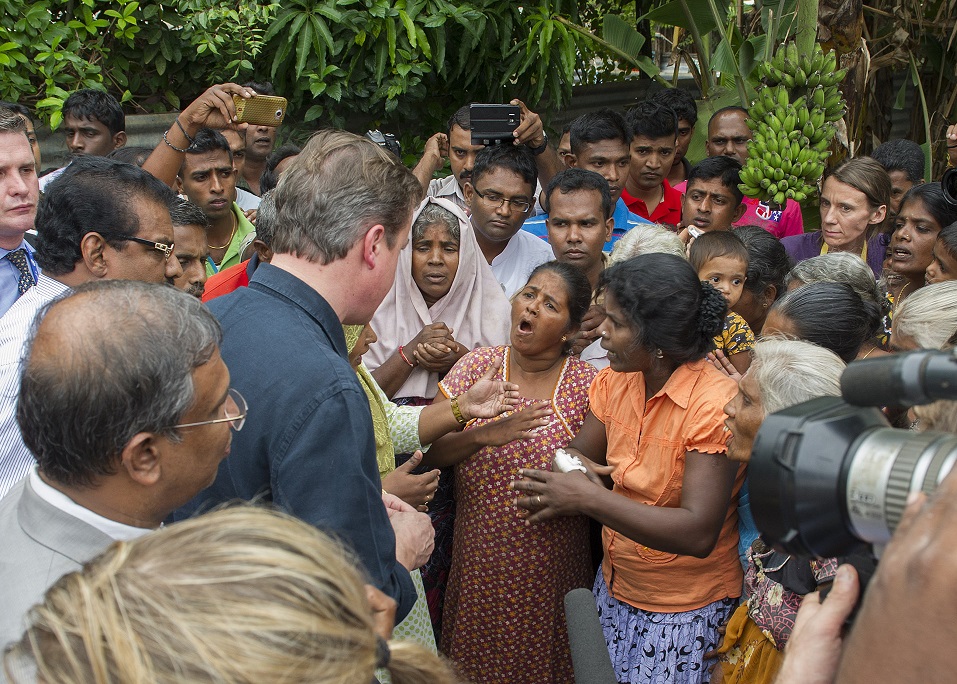

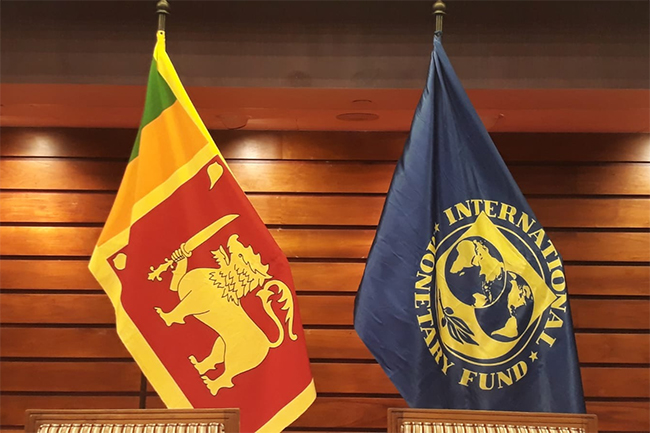

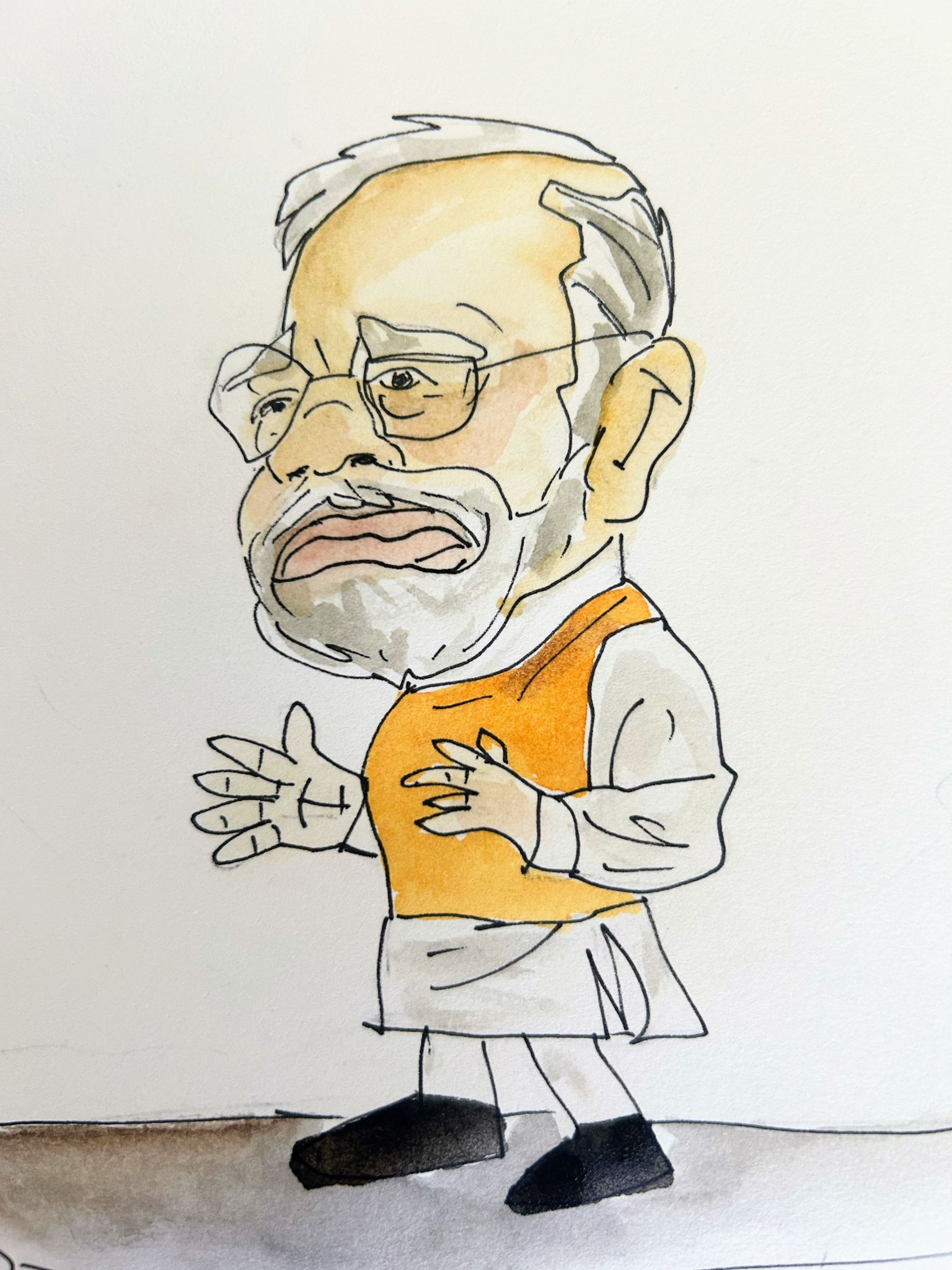



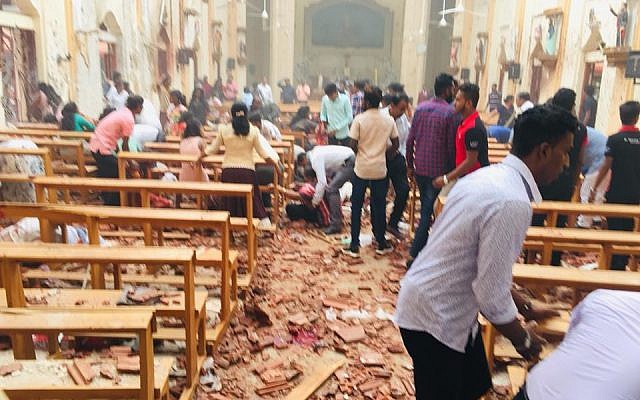
.JPG)
.JPG)

.jpg)
.jpg)
.jpg)
.jpg)

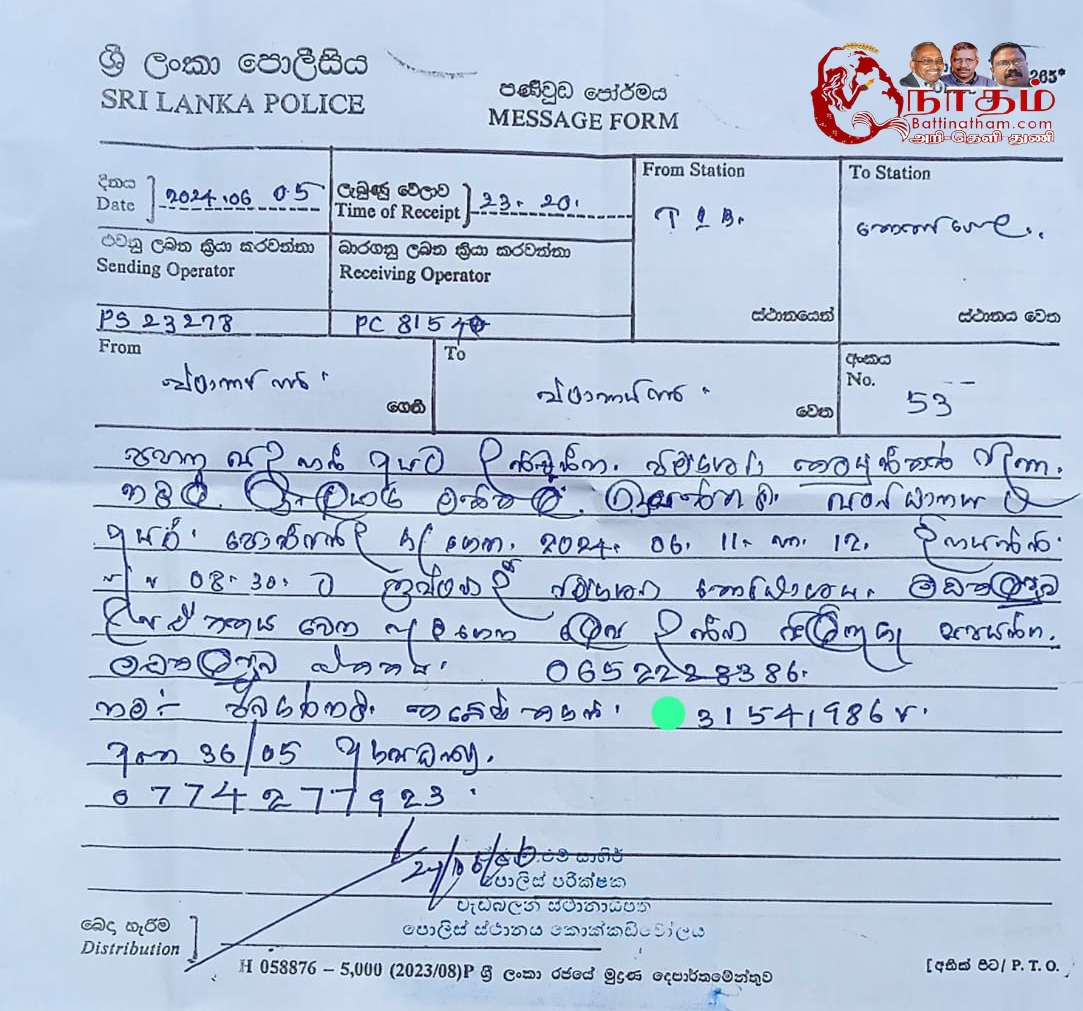

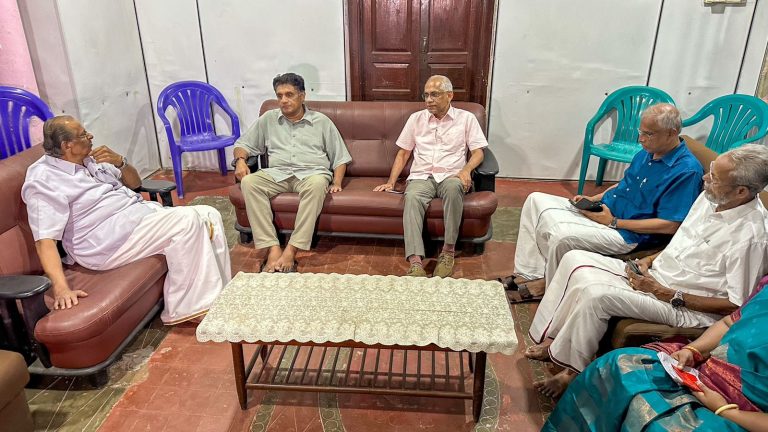
.jpg)

